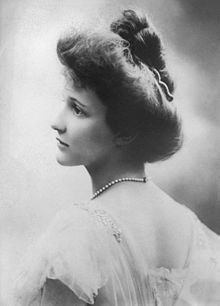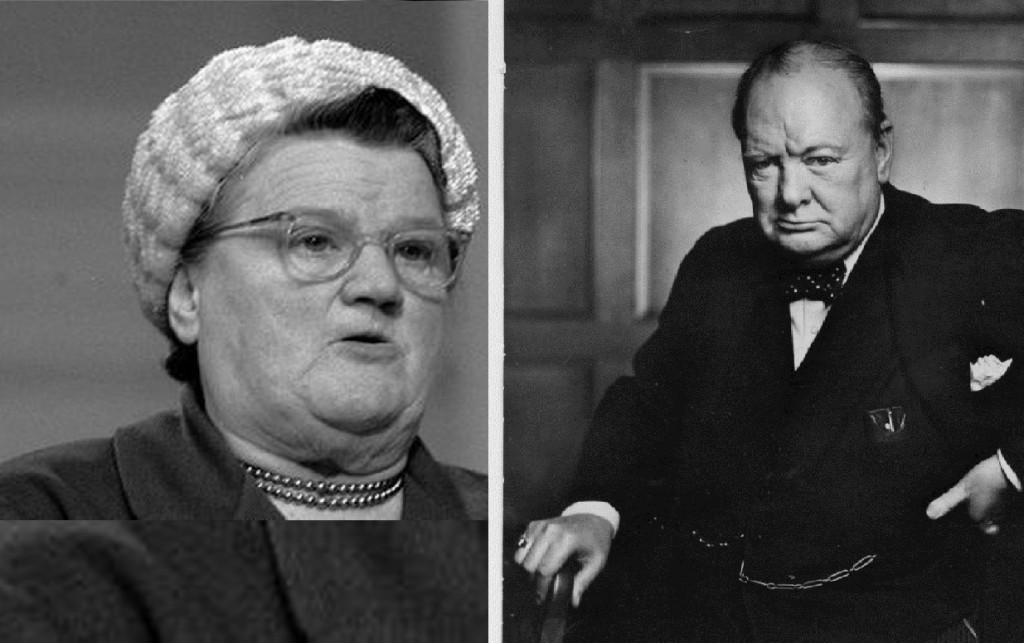In a long-forgotten era, the telling insult did not incorporate foul language or invective using four letter words mainly commencing with an F. Instead they exemplified the participant’s erudition, class, intelligence and wit. The putative insults between Winston Churchill and Lady Astor exhibited Churchill’s mastery of this art form. What is less well known is Lady Astor’s equally acerbic tongue and repartee skills. This lack will be put to rights in this blog.
One of the witticisms that have not yet made it into the history books, is one of the classic Mike Paxtonisms – a fellow runner – that he is so prone to intone. If Mike should ever obtain the recognition due to him and that he so richly deserves, this is one that he will be remembered by:
“I am not saying he is a slow runner, but the organisers know the race is over when he finishes”
Undoubtedly he could aver the same of me so I will not mention it in any of my blogs.
Back in the days when I was still able to run, the Announcer, George Knoetzen, would always make the exasperated comment, “Now that Dean has finished, we can all pack up.”
Of course the person most noted for their mordant wit, sardonic insults and off-the-cuff retorts, was none other than Britain’s wartime leader, Winston Churchill.

Apart from the disparaging repartee between Winston and Nancy Astor, Lady Astor herself was quite capable of making original comments which were a hybrid between a surly retort and an epigram.
Aside from this encounter with Winston – the first of many – she should be accorded greater recognition as Nancy Astor became the first woman Member of Parliament in 1919. Perhaps more importantly were the facts that it was as a Conservative Member of Parliament which had waged a ferocious rear-guard action to prevent women obtaining the vote but more significant was the fact that Plymouth was previously her husband’s – Waldorf Astor’s – seat.
Whatever the truth of the assertion that she only obtained the seat on her husband’s reputation, Lady Astor formed the vanguard of the female MPs. In order to clarify the confusion regarding Viscountess Astor’s status as being the first female MP, Nancy was not the first woman to be elected to the Westminster Parliament. That honour was achieved by Constance Markievicz who was the first woman MP elected to Westminster in 1918, but as she was an Irish Republican, she did not take her seat. As a result Lady Astor is sometimes erroneously referred to as the first woman elected to Parliament rather than the first woman to take her seat in Parliament.

Nancy Astor
She was noted for exchanges with Winston Churchill, though, these are not well documented. Churchill is supposed to have told Lady Astor that having a woman in Parliament was like having one intrude on him in the bathroom, to which she retorted, “You’re not handsome enough to have such fears.” Lady Astor is also said to have responded to a question from Churchill about what disguise he should wear to a masquerade ball by saying, “Why don’t you come sober, Prime Minister?” In another recounted exchange, Lady Astor said to Churchill, “If you were my husband, I’d poison your tea,” to which he responded, “Madam, if you were my wife, I’d drink it!” The retort has sometimes been attributed to one of Churchill’s friend, Lord Birkenhead.
Her political career is not noted for its success on a number of counts. Without the common touch, her aristocratic upbringing exposed her ignorance of current political issues. By the same token her tendency to say odd or outlandish things sometimes made her appear unstable.

A younger Nancy Astor
Even though Lady Astor never actively supported the Nazis during WW2, her repugnance of Stalinism, meant that she supported the rise of Nazism as a counter to its threat whilst not recognising in Nazism the self-same flaws as she detested in Stalinism.
As a noted non-conformist, Nancy became increasing at odds with Party leadership which finally forced her out of politics.
Nancy Astor is nearly as famous for her scathing wit as she is for her political career. Some examples which are paradigmatic of her acerbic tongue are as follows:

- I married beneath me. All women do.
- I refuse to admit that I am more than fifty-two, even if that does make my sons illegitimate.
- In passing, also, I would like to say that the first time Adam had a chance he laid the blame on a woman.
- My vigour, vitality, and cheek repel me. I am the kind of woman I would run from.
- One reason why I don’t drink is because I wish to know when I am having a good time.
- Pioneers may be picturesque figures, but they are often rather lonely ones.
- Real education should educate us out of self into something far finer; into a selflessness which links us with all humanity.
- The main dangers in this life are the people who want to change everything… or nothing.
- The only thing I like about rich people is their money.
- The penalty for success is to be bored by the people who used to snub you.
- Women have got to make the world safe for men since men have made it so darned unsafe for women.
- We women talk too much, but even then we don’t tell half what we know.
- Jakie, is it my birthday or am I dying? (Seeing all her children assembled at her bedside during her last illness.)
- What do those earthworms want now? (On hearing of the 1930s miners’ strike)
Needless to say, Churchill’s verbal sparring with Lady Astor was not the only insults that emanated from him.

Clement Attlee
On Clement Atlee he noted that he was “a sheep in sheep’s clothing” and perhaps more mordantly, “A modest man, who has much to be modest about” but my favourite on Atlee who was quiet unassuming but highly competent man, “An empty taxi arrived at 10 Downing Street, and when the door was opened, Atlee got out.”
One such retort often parodied even today relates to this comment made by Churchill in the 1920’s regarding Russia, “A riddle wrapped in a mystery inside an enigma”
My all-time favourite is this aspersion: Bessie Braddock to Churchill “Winston, your drunk!” Churchill: “Bessie, you are ugly, and tomorrow morning I shall be sober”
In real life, Bessie Braddock was not noted for her pulchritude as seen below

Would one like to verbally spar with Churchill? None dared.
Not all his insults were as thought provoking. Some were barbed curmudgeonly execrable retorts such as those directed at Neville Chamberlain. His decency and unwillingness to subject Britain to another world war, led him on the vain path of appeasement. In this approach, Hitler perceived weakness which he exploited.
Instead Churchill through inspired foresight recognised the rise of Nazism as a dire threat. To counter Chamberlain’s endeavours, he maligned Chamberlain mercilessly.
Here is a sample of those barbed sardonic comments: “He looked at foreign affairs through the wrong end of a municipal drainpipe.” On another occasion he noted, of Neville Chamberlain, “At the depths of that dusty soul there is nothing but abject surrender”. Finally Churchill quipped, “An appeaser is one who feeds a crocodile hoping it will eat him last”

Neville Chamberlain
With friends like that, who needs enemies?
What Churchill is nowadays remembered for are not these savage put-downs but rather his wartime speeches and radio addresses for which he is rightly remembered as one of the great orators of the 20th Century.
The well-spring of Churchill’s withering insults was used effectively during WW2 to lift the spirits of the British people in times of adversity. Instead of insults, his oratorical abilities were utilised in rousing speeches which set the British on the path of resistance to Hitler.
Therein lay Churchill’s true greatness.



Very enjoyable look into the personalities of Lady Astor, Churchhill and Bessie B.
I’m curious as to which book (s) this article is based on?
I’m writing a paper on Churchill.
I have seen two versions ofLady Astor’s “poison” quip:
“If I was your wife, I’d put poison in your tea.”
“If I was your wife, I’d put poison in your coffee.”
In both, Sir Winston’s reply is the same: “if I were your husband, I’d drink it.”
Which of the Lady Astor quips is correct?
Mark Gruenberg
Washington DC
That would be tea… Coffee is not as popular in England especially back then.. Its quite popular now in the U.K
Are you kidding me?? “Winston, *your* drunk!”??? I honestly can’t believe that made it past any editor.
Why.?
Winnie spent most of his adulthood that way. And still won the war
Madam , as you wish but I’ll be sober tomorrow
If you don’t love Churchill your just not trying at all!
WTG Winnie
N. Smith was referring to the ungrammatical “your” instead of the correct contraction of “you are” (you’re). For an article that on the surface purports to be fascinated with the skill at wielding language, that triggered my gag reflex.
https://www.google.com/amp/s/quoteinvestigator.com/2014/08/27/drink-it/amp/
Its only a rumor that this was actually said. Its actually a well published clip from many newspapers dated 50 years prior to when Churchill/Aster supposedly said this.
Quotes are often attributed to whatever historical personage or event best fits the teller.